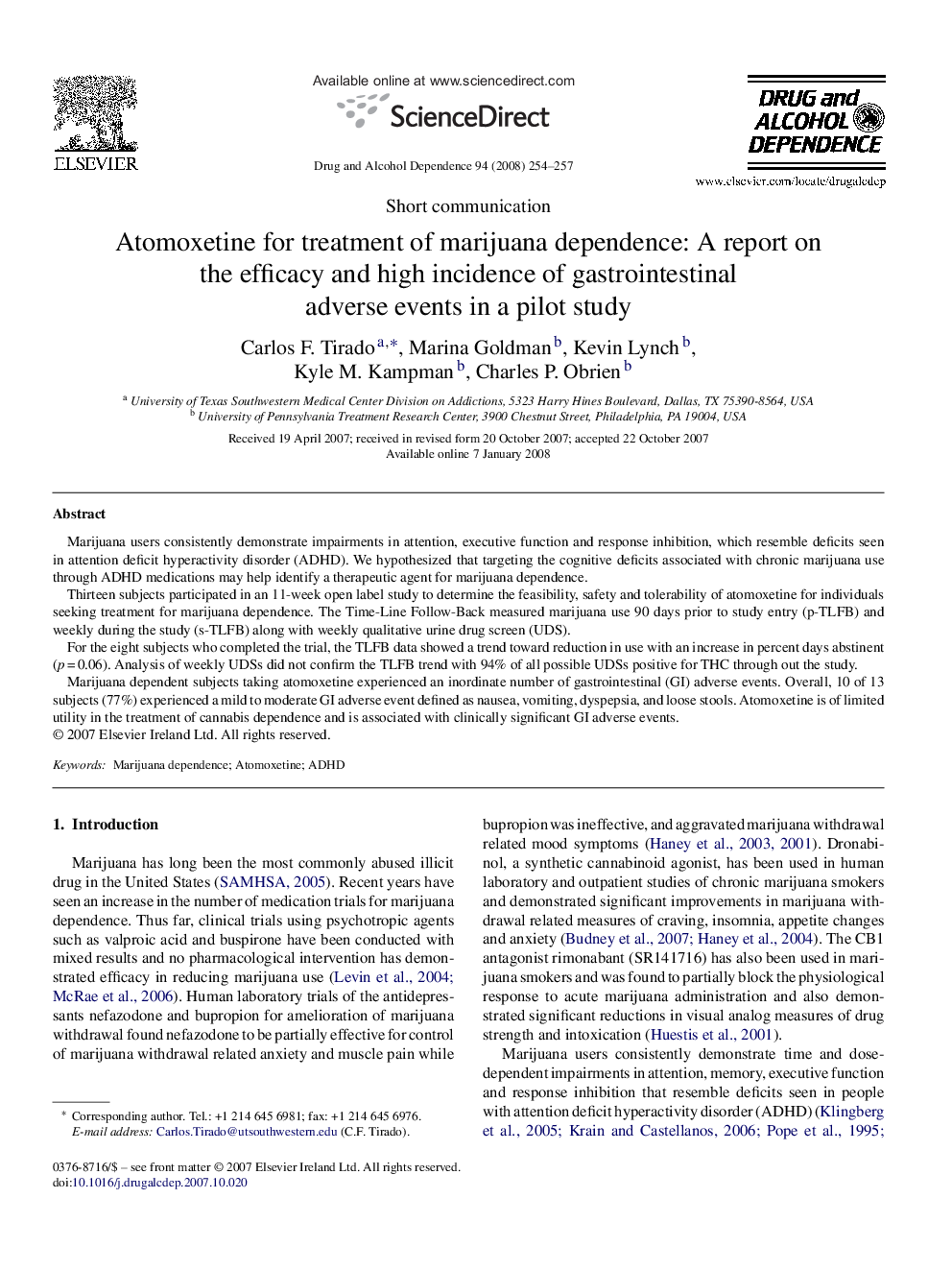| Article ID | Journal | Published Year | Pages | File Type |
|---|---|---|---|---|
| 1071151 | Drug and Alcohol Dependence | 2008 | 4 Pages |
Marijuana users consistently demonstrate impairments in attention, executive function and response inhibition, which resemble deficits seen in attention deficit hyperactivity disorder (ADHD). We hypothesized that targeting the cognitive deficits associated with chronic marijuana use through ADHD medications may help identify a therapeutic agent for marijuana dependence.Thirteen subjects participated in an 11-week open label study to determine the feasibility, safety and tolerability of atomoxetine for individuals seeking treatment for marijuana dependence. The Time-Line Follow-Back measured marijuana use 90 days prior to study entry (p-TLFB) and weekly during the study (s-TLFB) along with weekly qualitative urine drug screen (UDS).For the eight subjects who completed the trial, the TLFB data showed a trend toward reduction in use with an increase in percent days abstinent (p = 0.06). Analysis of weekly UDSs did not confirm the TLFB trend with 94% of all possible UDSs positive for THC through out the study.Marijuana dependent subjects taking atomoxetine experienced an inordinate number of gastrointestinal (GI) adverse events. Overall, 10 of 13 subjects (77%) experienced a mild to moderate GI adverse event defined as nausea, vomiting, dyspepsia, and loose stools. Atomoxetine is of limited utility in the treatment of cannabis dependence and is associated with clinically significant GI adverse events.
